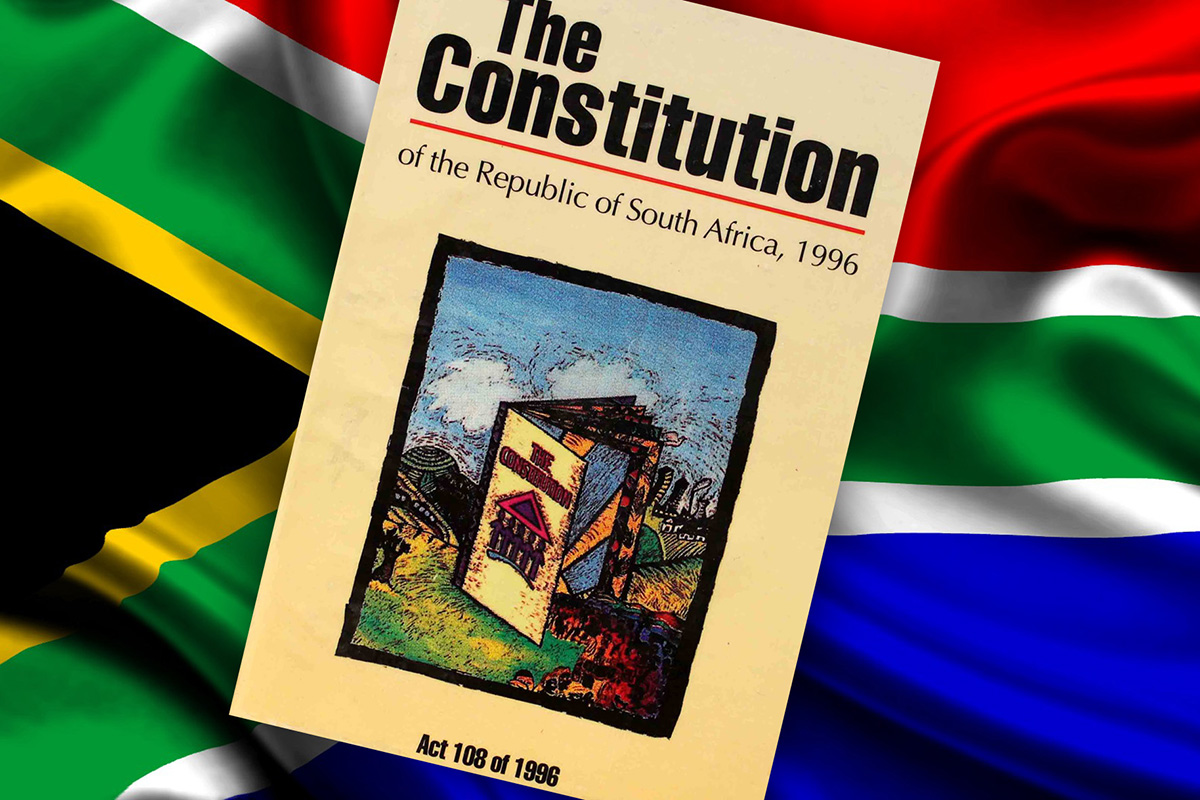
The constitution is seen as a bastion against racism and any infringement of individual rights. No law or decree in South Africa may supersede the constitution. It provides for a federal state, governed by a central government and nine provincial governments. The constitution includes a bill of rights (chapter 2) that binds private persons and the state as well as addresses social issues.
The South African constitution underwent many processes of drafting and consideration, to ensure that ‘the final constitution is legitimate, credible and accepted by all South Africans’ as can be seen in the explanatory memorandum of the act. It, therefore ‘represents the collective wisdom of the South African people and has been arrived at by general agreement’.
The constitution lays out the rules and regulations which ensure human rights are safeguarded at various levels. The Bill of Rights legislates the rights of individuals. Other institutions and bodies are called into existence by the Constitution to protect human rights. A further essential part of the Constitution is how it regulates these very bodies and institutions to which it has given the power. The legislation therefore also reduces the potential for further abuses in this way. The Constitution and Bill of Rights also set the scene for the protection of labour rights via the various labour relations related acts.
Click here to view a video on why do we have a constitution.